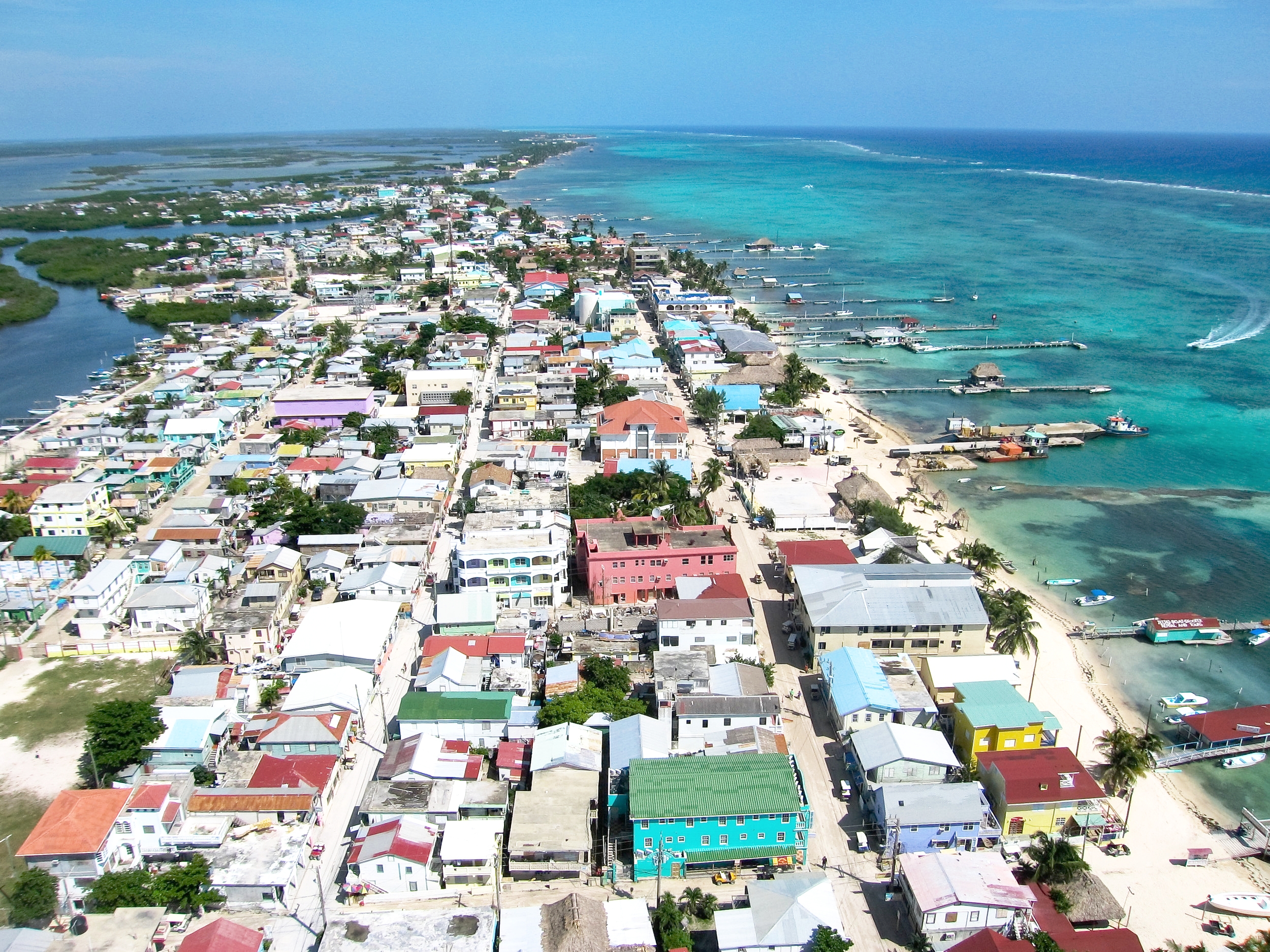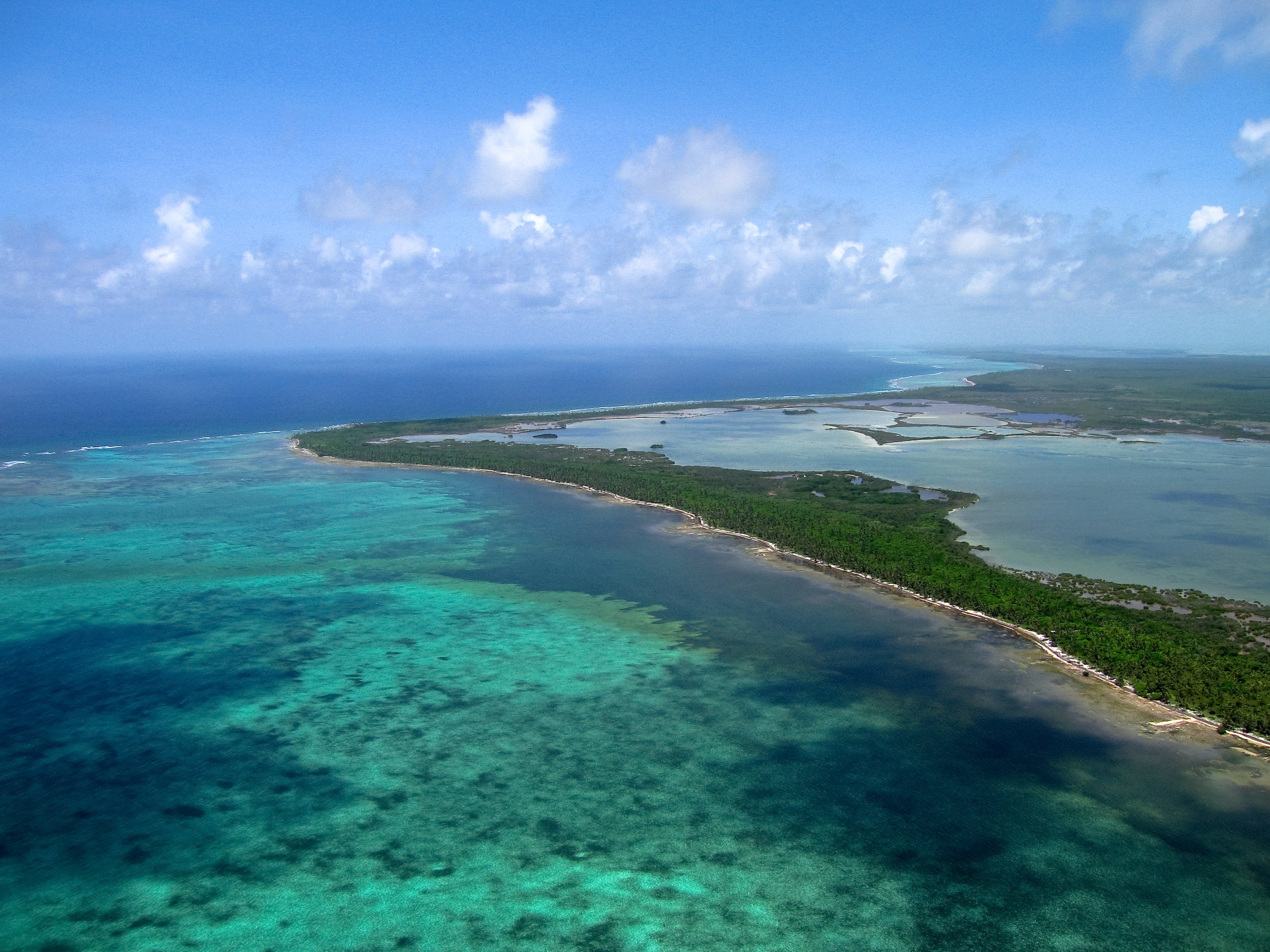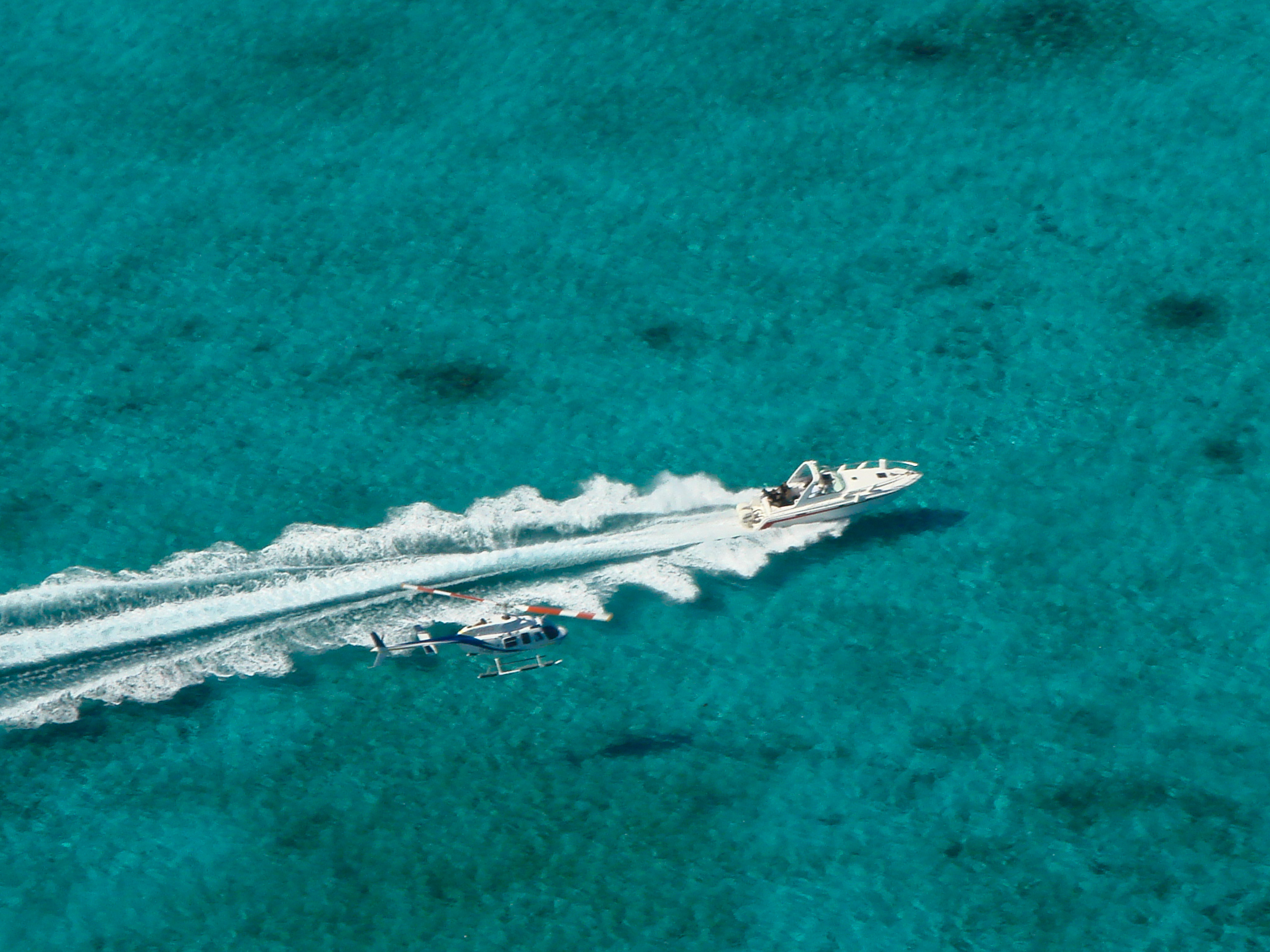San Pedro, Ambergris Caye
TRANSFER TO San Pedro MUNICIPAL AIRPORT located just off the southern shore of Ambergris Caye and what better way to get there than by a fun and exciting site-seeing helicopter ride to the island.
There are three different routes to choose from in the transfer from the Belize International Airport to the resort. The options are as follows:
Option 1: Direct Route to San Pedro (Blue Route)
Upon leaving from the Belize International Airport, you go directly into the breath-taking view of the Caribbean Sea. Flying through the air you will pass over a few small cayes such as the ‘Hen & Chicken’ Caye. Enjoy the scenery of the open blue waters just breathing in the fresh air. Further along, you will pass over Congrejo Caye, and southern Ambergris Caye before landing at the final destination at San Pedro.
Option 2: Reef Flight Transfer to San Pedro (Red Route)
After leaving from the Belize International Airport, the flight takes you directly to the exotic view of the world’s second largest reef, Belize’s Barrier Reef. See the small cayes along the reef as they drench in the midst of the deep blue waters, such as Coffee Caye, Montego Caye and Long Caye. Following the path of the reef, be amazed at the different shades of colors of the Reef and look closely as you might see a manatee, dolphin or shark in the waters. You will then fly over the golf course at Caye Chapel.
Then, it’s one thing crossing over the split of Caye Caulker by land but imagine viewing it from above seeing all the formation of how the hurricane just divided the caye into two separate parts. Further down the path of the Reef you will be able to see the most popular snorkeling site in Belize, Hol Chan Marine Reserve. The flight continues further along the reef where you can be dazzled by the water view that borders our Reef until arriving to the final destination of San Pedro.
3: Blue Hole Over Flight Transfer to San Pedro (Orange Route)
After leaving from the Belize International Airport, the flight takes you over the mainland and directly into the crystal Blue waters of the Caribbean Sea. You will quickly have the Reef in view where you will fly over Gallows Pt. At the cross over of the reef you will view the rushing waves that fight to get across the reef. Keep your eyes open too; you may be one of the lucky few who get to see sharks, dolphins, sting rays, manatees or crocodiles along the way.
Turneffe Island is the largest of the three Atolls located in Belize stretching 30 miles long and 10 miles wide. The flight enters over the west of the Island at Snake Pt., then you will enter the Central Lagoon where you will fly over many small cayes before reaching the Northern Bogue and the east end of Turneffe Islands. At the atolls, there are about 200 cayes that are covered by mangroves. The Turneffe Islands are home to many exotic marine animals the more popular of those are the eagle rays, playful dolphins, turtles, huge green morays, giant Jew fish, nurse sharks, reef sharks, grouper, snapper and hose-eye jacks.
The adventure continues as you venture into the open ocean continuing south-east heading towards the Lighthouse Reef Atoll, beyond the barrier en route to the one of a kind Blue Hole. You will first enter the Lighthouse Reef Atoll on the southern end and overfly Long Caye and you will see on the horizon one of Belize’s largest protected areas, Half Moon Caye Natural Monument which encompasses 10,000 acres of atoll and 15 square miles of surrounding areas.
You will then fly inside the Lighthouse Reef heading north to the great Blue Hole. As you go across this spectacular hole, you will be dazzled by its size and color. The Blue Hole is the largest ocean sinkhole in the world, created by a collapsed underground cavern, hence giving the appearance of a dark blue circle amidst the turquoise sea. The Blue Hole measures 1,000 ft in diameter and 460 feet in depth. It is located approximately 60 miles west from Belize City and in March of 1996 it was declared a World Heritage Site and later declared a National Monument in February of 1999.
Your journey comes to an end as we head to back to Turneffe Islands, and then the main reef on your way to your final destination San Pedro




